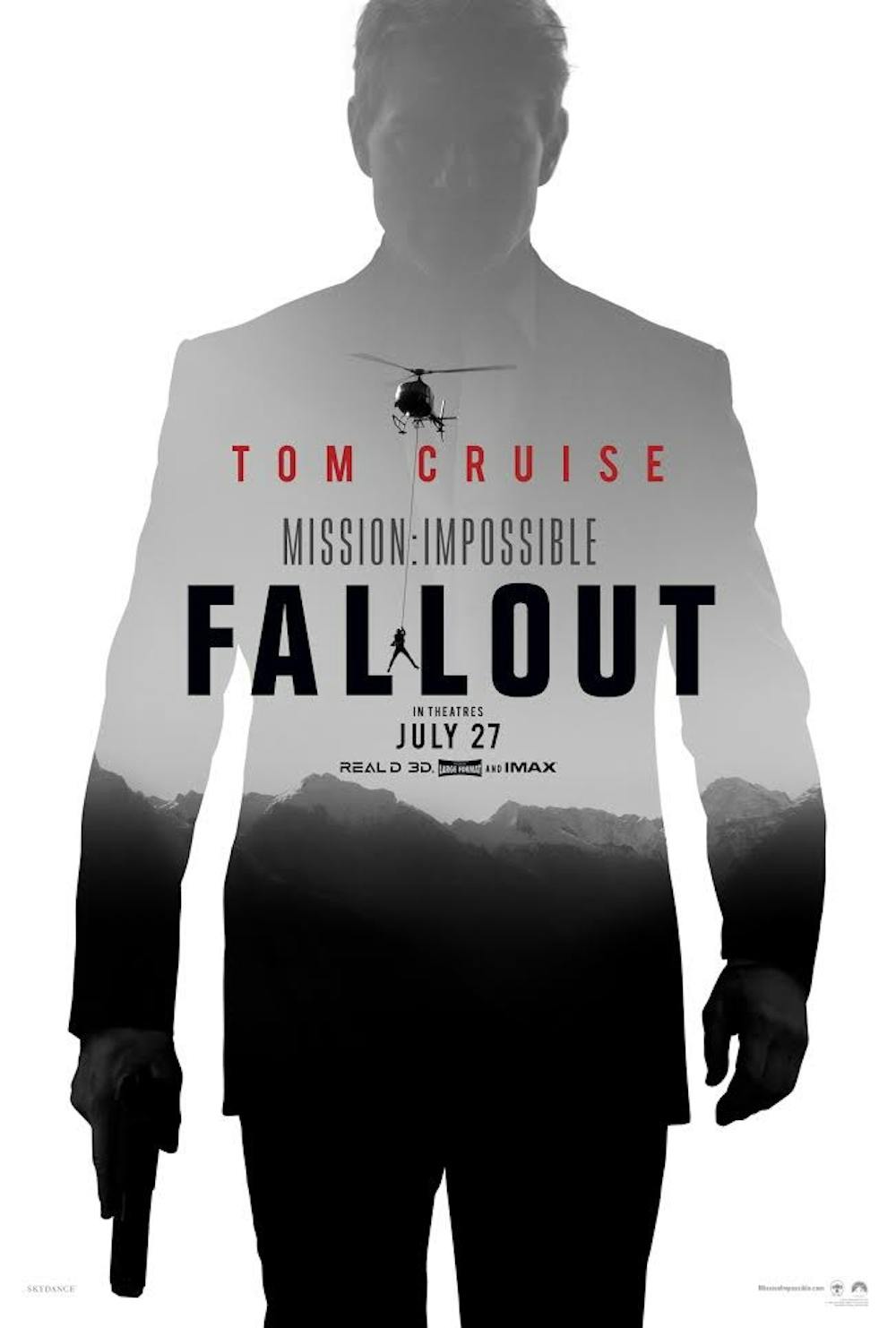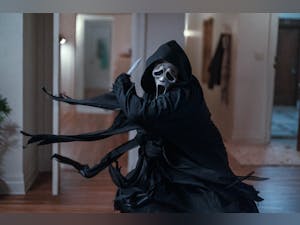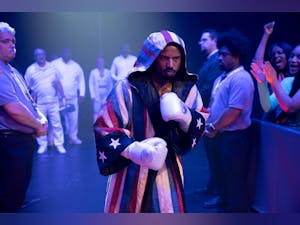From: Silver Screen
‘Mission: Impossible - Fallout’ makes perfect use of emotional weight, white-knuckle action

Tom Cruise stars in "Mission: Impossible -- Fallout," out everywhere July 27.
“Mission: Impossible” is not the first thing that comes to mind when considering Hollywood blockbuster franchises, but maybe it should be.
Major film consumption has turned a new page in the past decade. Superheroes and ‘cinematic universes’ dominate the zeitgeist. Great action films and franchises still exist - see “John Wick” - and still make an obscene amount of money - see “Fast and Furious.” However, they are secondhand entertainment to most film fans. The “Mission: Impossible” franchise has had some ups and downs, but following JJ Abrams’ attempt to salvage the franchise in “M:I III” and Brad Bird’s later “Mission: Impossible - Ghost Protocol” granting the franchise even footing, the series is experiencing a renaissance.
From Brian De Palma’s original 1996 film, the series has stretched itself to 22 long years, but the films have become richer in tone and emotional weight. Perhaps the best installment of the franchise was the fifth “Rogue Nation,” focusing on repercussions from “Ghost Protocol” and pinching Tom Cruise’s Ethan Hunt into a more emotional finale.
Tom Cruise, now 56 years young, and his willingness to perform his own seriously absurd stunts, ground the series in a more honest light than most action franchises can. While the stunts provide a lot of incredible entertainment and spectacle, writer/director Christopher McQuarrie of “Rogue Nation” and the latest installment “Mission: Impossible - Fallout” understands the need for smart storytelling and emotional stakes.
“Fallout” is more of an action film than a spy film, not to say the previous ventures were much of spy films either, but “Fallout” embraces this title and crafts one of the best action films of the past decade. The set pieces are engrossing and the action feels visceral, every punch (reloaded arms or not) and every bullet fired has a weight to it.
Opening up two years past the events of “Rogue Nation,” Hunt and his crew have to obtain plutonium before a terrorist organization bent on ‘re-establishing the world order’ can. The Impossible Mission Force fail, and the resulting consequences lead Hunt into the underground world of terror and arms brokering in an attempt to retrieve the plutonium before an unknown, code-named terrorist can.
Virtually all of the “M:I” films often feature Tom Cruise’s Ethan Hunt going rogue and attempting to disable a nuclear device, “Fallout” keeps that tradition alive but sets a different tone ─ the film is much darker than the past couple even with a good amount of laughs. It feels like emotional closure, for multiple characters, almost becoming what “Spectre” should have been for the latest James Bond saga. As the title suggests, there is a fallout for the previous film’s actions ─ the series has officially turned its thematic focus on consequence.
Cruise is given a lot of emotional storylines to work with, certainly the most the series has seen. And no character is left unserved, Ving Rhames as Luther Stickle has an engaging story that could have fallen tremendously flat if not acted and directed perfectly. Rebecca Ferguson and Simon Pegg also shine in some respective scenes. Sean Harris, the series’ best villain, is a welcome return as well.
Henry Cavill gets the most screen time besides Cruise, he stars as August Walker, a CIA assassin assigned to follow Hunt and ensure he doesn’t go rogue and risk the mission’s success. Cavill performs adequately in a role that is more plot device than character but still turns in an entertaining performance with some memorable moments of action and humor, and his impressive multi-million dollar mustache helps too.
Narratively, McQuarrie creates a whip smart film that throws its audience around and pressures viewers to think about what is happening on the screen along with character intentions. Cinematographer Rob Hardy makes perfect use of symmetry and shadows, particularly in the elongated Paris sequences.
Perhaps the only flaw this film faces is one too many characters, attempting to follow nearly five or six different agendas at one time can be dizzying. McQuarrie simplifies this by the third act but it takes a lot of thought and retracing the plot to understand every character’s motivations and actions during the busy second act.
Nevertheless, franchises are here to stay, and while “Fallout” is the sixth entry in the series, one could only hope every other franchise ages as well as “Mission: Impossible” has.
Grade: A




